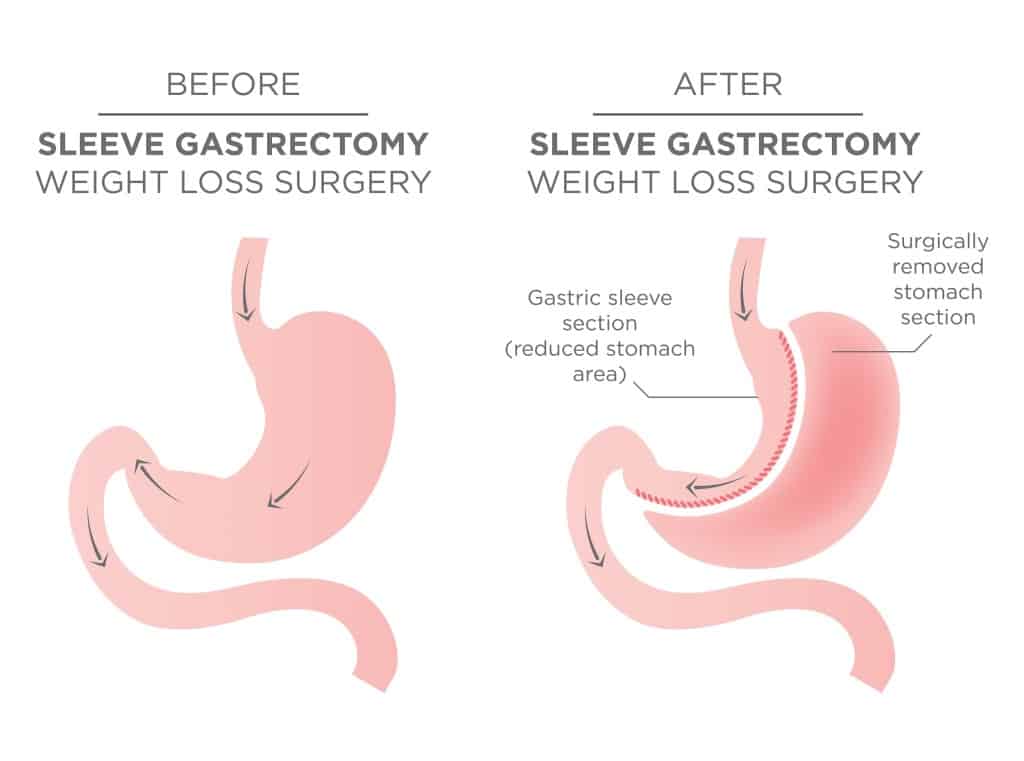Gastric sleeve surgery is currently the most commonly performed bariatric procedure in the US and the world. It is less invasive than gastric bypass and much more effective than lap band. When properly performed, gastric sleeve is safe and has minimal long-term complications. The most important step in gastric sleeve surgery is complete gastric fundus resection. Retained gastric fundus leads to poor weight loss results and most importantly to severe acid reflux. Complete take down of all short gastric vessels and full visualization of the left crus are key steps to mobilizing the posterior fundus.
For years, bariatric surgeons have debated the size of the bougie used to resect the stomach. A number of non-sense guidelines and recommendations were issued with little relevance to the underlying physiology of gastric sleeve and its metabolic effects. We now know that resecting the fundus is a key step in sleeve surgery irrespective of bougie size. Indeed, fundus resection is not only important for weight loss results but also to prevent postoperative acid reflux. Hiatal hernia repair dominated many discussions on acid reflux prevention following gastric sleeve surgery. The reality is that complete gastric fundus resection rather than hiatal hernia repair is the key to acid reflux control in the setting of sleeve gastrectomy.
“Association of radiographic morphology with early gastroesophageal reflux disease and satiety control after sleeve gastrectomy” by Moreno et al is a study published in the Journal of the American College of Surgeons in 2014. The study analyzes the gastric sleeve shape on routine post-operative gastrointestinal series. Those patients with retained fundus had lower satiety scores and higher severity of reflux symptoms. Along the same lines, Gagner el al published a series of 36 redo gastric sleeve surgeries in 2014 in Surgical Endoscopy journal. The indications for revision surgery were failure to loose weight, weight regain and intractable acid reflux. All patients had a large gastric fundus. The mean percentage of excess weight loss after sleeve revision was 58.5 % (±25.3) (p < 0.0004) for a mean follow-up of 20 months (range 6-56 months). Acid reflux related symptoms resolved in two patients after redo gastric sleeve.
Is gastric sleeve surgery the right choice for you? The answer is most likely yes granted that the gastric fundus is completely resected to give you the best weight loss possible and the least likelihood of developing acid reflux disease after surgery.

